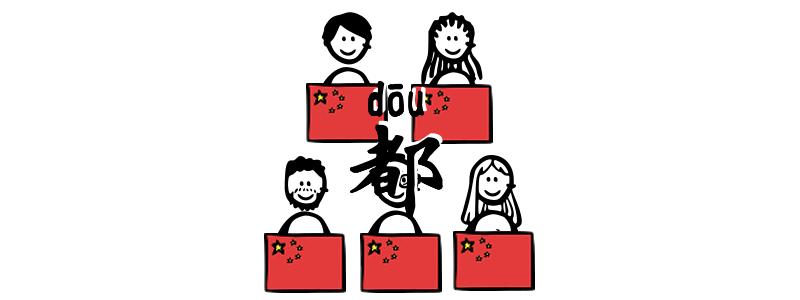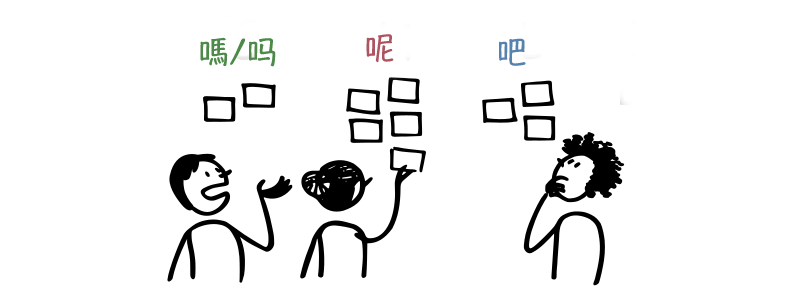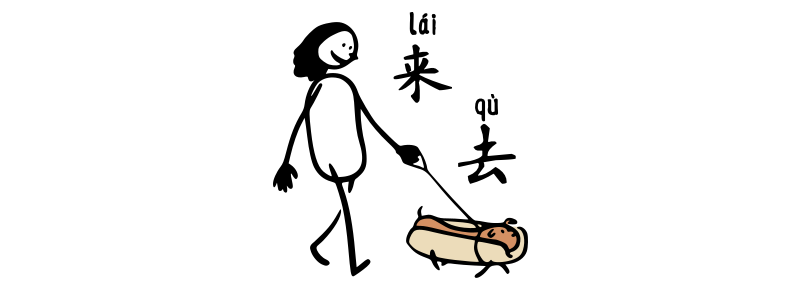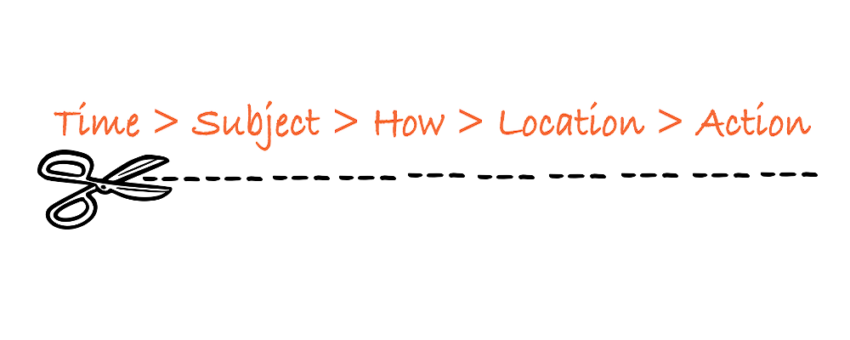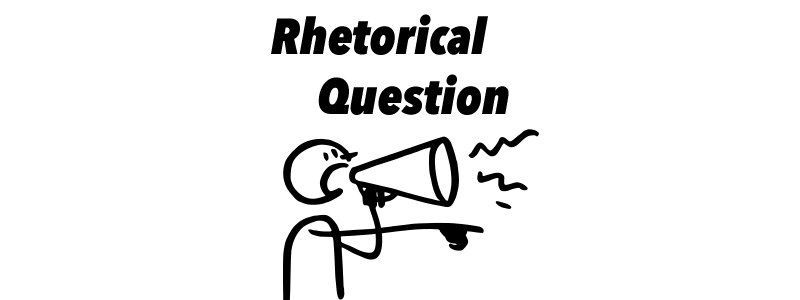Structure S + 也 yě + V 也 yě generally indicates that something is included in a similar way to what has been mentioned or in addition to it which can be translated into “also,” “either,” or “too” in English. 我wǒ喜歡xǐhuān狗gǒu, 我wǒ弟弟dìdi也yě喜歡xǐhuān狗gǒu我wǒ喜欢xǐhuan狗gǒu, 我wǒ弟弟dìdi也yě喜欢xǐhuan狗gǒuI like dogs, and my younger brother likes them, too. 我wǒ也yě要yào喝hē珍珠奶茶zhēnzhūnǎichá! 我wǒ也yě要yào喝hē珍珠奶茶zhēnzhūnǎichá! I…
Author: tiffany
Adverb 都 dōu
Grammar Point:The adverb 都 dōu in Chinese is typically used to indicate “all” or “both” and can be placed before the verb or before the subject. It is commonly used in sentences to indicate that multiple things or people are involved in an action or state. Structure S + 都 dōu + V or SV…
Giving Suggestion with 吧 ba
Final Particles 吧 ba Checking or confirmation: compare with 嗎吗 ma, this one you already have some guessing in your mind. 🔊 你nǐ是shì日本人rìběnrén吧ba? 你nǐ是shì日本人rìběnrén吧ba? You are Japanese, right? 你nǐ喜歡xǐhuān貓māo吧ba? 你nǐ喜欢xǐhuan猫māo吧ba? You like cats, don’t you? Suggestion 🔊 你nǐ學xué一點yìdiǎn中文zhōngwén吧ba! 你nǐ学xué一点儿yìdiǎnr中文zhōngwén吧ba! You should learn some Chinese! 我們wǒmen今天jīntiān吃chī牛肉麵niúròumiàn吧ba!!我们wǒmen今天jīntiān吃chī牛肉面niúròumiàn吧ba!! Let’s eat beef noodles today! (suggest) Compromise (Using as a…
“In person” in Chinese – qīnzì
Grammar Point:The phrase “In person” in Chinese is 親亲自 qīnzì. It refers to doing something yourself or in one’s own physical presence, rather than through a representative or by some other indirect means. Structure S + 親亲自 qīnzì + V + O 這zhè是shì我wǒ親自qīnzì做zuò的de蛋糕dàngāo这zhè是shì我wǒ亲自qīnzì做zuò的de蛋糕dàngāoThis is a cake I made personally. 你nǐ親自qīnzì去qù跟gēn他tā說shuō的de嗎ma? 你nǐ亲自qīnzì去qù跟gēn他tā说shuō的de吗ma? Did you personally talk…
Expressing “not even one” in Chinese
Grammar Point:In English, you can express the idea of having absolutely no money, not even a single penny. This notion of “not even one” can also be conveyed in Chinese. Structure 一 yì + MW + N + 也 yě or 都 dōu + negation 他tā一yí句jù中文zhōngwén也yě不會búhuì說shuō他tā一yí句jù中文zhōngwén也yě不会búhuì说shuōHe can’t speak a single word of Chinese. 我wǒ一yí個ge歐洲ōuzhōu國家guójiā也yě沒méi去qù過guò我wǒ一yí个ge欧洲ōuzhōu国家guójiā也yě没méi去qù过guòI haven’t…
Express “Intention” with 去 qù or 來 lái
The Chinese words 去 qù and 來来 lái are verbs that mean “to go” and “to come.” They are fundamental and commonly used words in the Chinese language, indicating movement from one place to another, such as going to a location, leaving a place, or traveling to a specific destination. In Chinese, you can also…
Sentence Structure in Chinese
What is the most common sentence order in Chinese? 📌 Time + Subject + How + Location + Action * Time words can either go after the subject or before the subject.* If you want to specify the direction, the directional word should come after ‘how’ and before ‘location’. Time Subject How Direction Location Action 去年 弟弟 坐船…
Rhetorical question with shénme
Grammar Point:In Chinese, a rhetorical question can be formed by using the word 什麼么 shénme which means “what.” It is used to emphasize a point or express surprise or disbelief. This is a way of making a statement or remarking on something, and the speaker isn’t necessarily expecting a response. Structure V or Adj +…
“Always” in Chinese 1 – cónglái
Grammar Point:The Chinese word 從來从来 cónglái means “always.” It is used to indicate that something has been true or consistent throughout a period of time. Structure S + 從來从来 cónglái + 都 dōu In this structure, you do not add negation words like 不 bù or 没 méi to indicate the negative form. 成功chénggōng從來cónglái都dōu要yào靠kào努力nǔlì成功chénggōng从来cónglái都dōu要yào靠kào努力nǔlìSuccess always…
“Never” in Chinese – cónglái
Grammar Point:The word “Never” in Chinese can be translated as 從來从来 cónglái. It is used to indicate that something has not happened at any time in the past or will not happen in the future. Structure S + cónglái + 不 bù + V In casual speech, 從來从来 cónglái can be shortened to just 從从…

